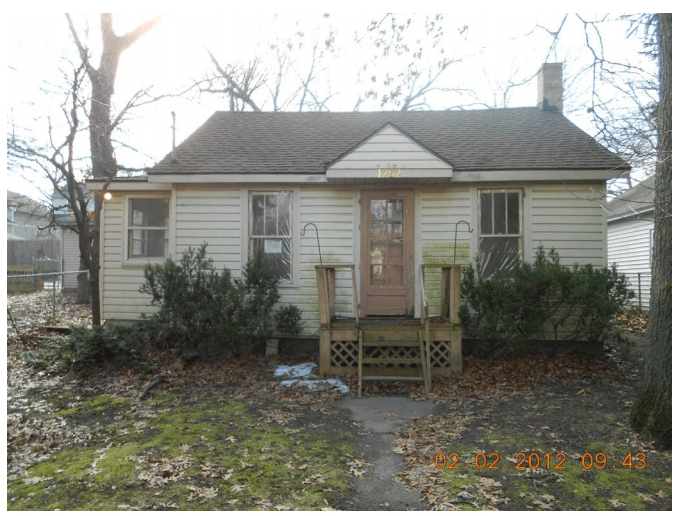Fair housing groups have added more cities and new evidence to a complaint filed one year ago today against Bank of America that claims that the bank hasn’t been diligent in maintaining and marketing bank-owned properties in minority neighborhoods.
Bank of America’s practices have undermined property values and discouraged purchases by owner-occupants in favor of investors, the lawsuit claims.
In April 2012, the National Fair Housing Alliance released a study that concluded that lenders were violating the Fair Housing Act in their handling of many properties they’d repossessed in African-American and Latino neighborhoods. The homes, the study claimed, were not being maintained or marketed as diligently as homes in predominantly white neighborhoods.
The group’s evaluation of more than 1,000 homes repossessed by lenders in nine markets found that properties in white communities “generally appeared inhabited, well-maintained, and attractive to real estate agents and homebuyers,” but that “real estate owned” (REO) homes in minority communities were “more likely to have overgrown yards littered with trash, unsecured doors, broken windows, and indications of marketing as a distressed sale.”
That same month, the group filed a discrimination complaint against Wells Fargo. This past June, Wells Fargo agreed to pay $42 million to settle the complaint with monies divided among the U.S. Department of Housing and Urban Development (HUD), the NFHA and 13 other fair housing groups. The bank also agreed to implement best practices for the maintenance and marketing of its REO properties under the supervision of a third party, among other commitments.
In September 2012, the NFHA, along with four of its member organizations, filed a complaint with HUD against Bank of America, alleging racial disparities in Bank of America’s maintenance and marketing of REO properties nationwide and named 13 metro areas affected: Oakland, Richmond, and Concord, Calif.; Grand Rapids, Mich.; Atlanta; Dayton, Ohio; Miami, Fla.; Dallas; Phoenix; Metropolitan Washington, D.C.; Orlando, Fla.; Charleston, S.C.; Chicago; Milwaukee, Wis.; and Indianapolis.
In today’s amended complaint, five new metro areas were added: Memphis, Tenn.; Denver; Las Vegas; Tucson, Ariz.; and Philadelphia. The complaint also included new evidence in Atlanta, Dayton, Miami and Prince George’s County in the Washington, D.C., area supporting the groups’ allegations of a continuing violation by Bank of America. The complaint now includes a total of 621 properties nationwide.
The complaint noted that Bank of America has a vast network of brokers and agents who list REO properties on the bank’s behalf and help to maintain and market those properties. The bank also contracts with asset management companies to perform preservation and maintenance work on REO properties at its behest.
“Every day Bank of America continues to neglect homes it owns in communities of color and prices decline, allowing investors to snatch up these foreclosures, turning communities into neighborhoods of absentee landlords,” said Shanna L. Smith, president and CEO of the National Fair Housing Alliance, in a statement.
“Bank of America is the second-largest commercial bank in the United States, and it has been on notice of these problems since 2009. And yet, Bank of America chooses to ignore its responsibility to maintain and market foreclosures regardless of the racial or ethnic makeup of the community.”
Dan B. Frahm, a spokesman for Bank of America, told the Wall Street Journal that previous claims by NFHA “revealed numerous, material flaws in their methodology and how they represented that information publicly.”
This included not taking into account the condition of the property when it came into the bank’s possession, he said. He added that the majority of properties NFHA faulted Bank of America for were the responsibility of other entities to maintain and market and included properties the bank had agreed to donate to local groups in their existing condition.
The five fair housing groups evaluated the maintenance and marketing of REO properties for 39 different types of maintenance or marketing deficiencies, including broken windows and doors, water damage, overgrown lawns, no “For Sale” sign, trash on the property, and other problems, the NFHA said.
“It is common practice when selling a home to place a ‘For Sale’ sign in the front yard. Without a sign on a property, potential homebuyers do not even know the property is available. Also, without a sign, neighbors would not know whom to call to report unauthorized occupants or storm damage,”the NFHA said.
“In Memphis, all (100 percent) of Bank of America REO properties in communities of color were missing a ‘For Sale’ sign, as were 93 percent in Tucson, and 78 percent in Philadelphia.”
“Trash on a property is not only an eyesore for neighbors, but it makes a home unappealing to buyers, and can be a potential health and safety hazard,” the group added.

A Grand Rapids, Mich., home in a predominantly African-American neighborhood. Source: National Fair Housing Alliance.
In an exhibit submitted with its amended complaint, the NFHA included several photos comparing and contrasting the conditions of Bank of America-owned homes in several cities. The Grand Rapids, Mich., home above is in a predominantly African-American neighborhood and had 15 deficiencies recorded, including no “For Sale” sign, excessive mold, leaves, trash and broken windows. The Grand Rapid, Mich., home below is in a predominantly white neighborhood and had nine deficiencies recorded. The group did not detail what they were.

A Grand Rapids, Mich., home in a predominantly white neighborhood. Source: National Fair Housing Alliance.
In its investigations, the group found that Bank of America-owned REO properties in communities of color were two times more likely than REO properties in white communities to have more than 10 maintenance or marketing problems and 4.5 times more likely to have more than 15 maintenance or marketing problems.
“These unlawful discriminatory practices discourage purchasers from buying homes in communities of color and result in foreclosed properties remaining vacant for extended periods of time; reinforce differences in property values between communities of color and white communities; reinforce negative stereotypes about communities and individuals based on race and national origin; tend to perpetuate and exacerbate racial segregation in the housing market; adversely affect home values and wealth of homeowners in communities of color; adversely affect the emotional and physical health of residents of communities of color, especially where the failure to maintain creates conditions ripe for mold, vermin and vandalism; and too often result in investors purchasing homes at below-market prices and turning neighborhoods in communities of color that once had high homeownership rates into investor/rental/absentee landlord neighborhoods,” the complaint said.
The NFHA’s investigation was funded in part by a grant from HUD. The NFHA and other, similar groups received $38 million today from HUD to help the government fight housing discrimination, including carrying out testing and enforcement programs.






